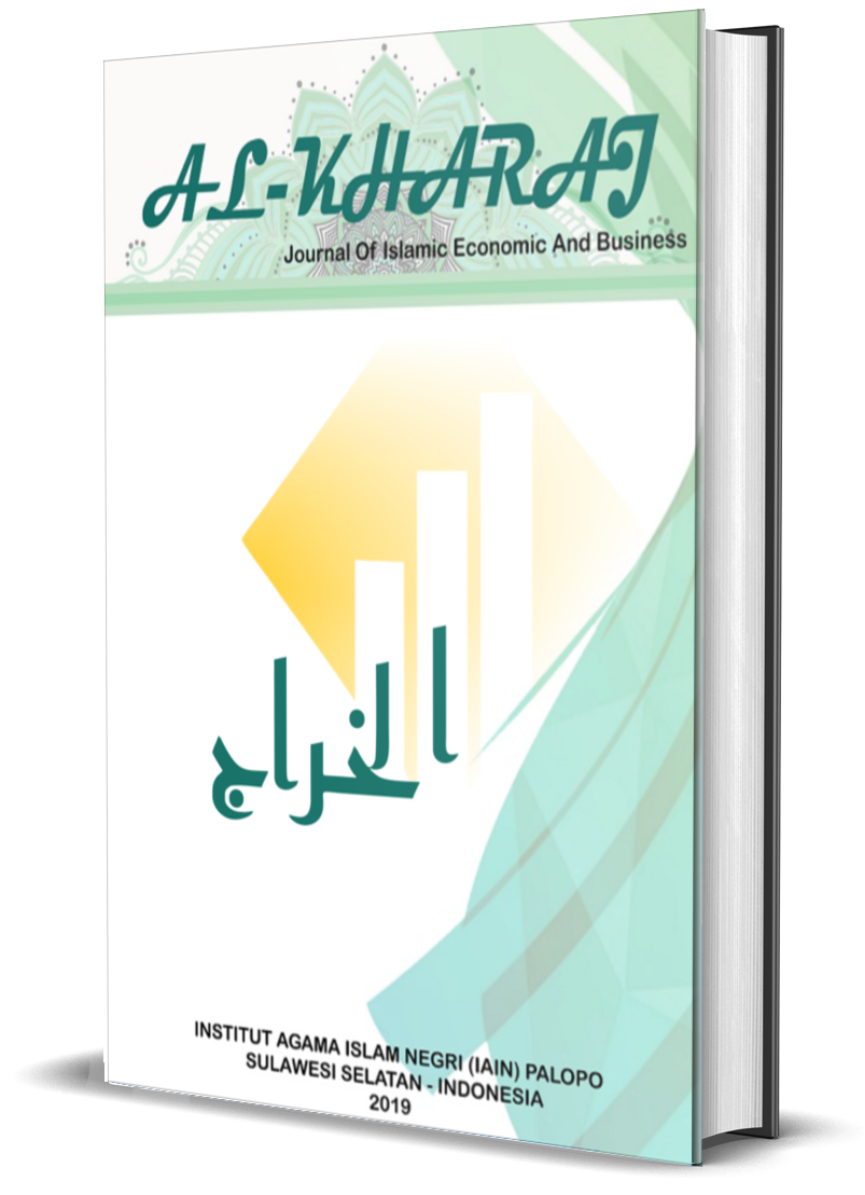Economic Justice Through Al-Hisbah: Reviewing The Role And Performance Of Market Supervisory Institutions
DOI:
https://doi.org/10.24256/kharaj.v6i1.5022Keywords:
Economic Justice, Al-Hisbah, Market SupervisorAbstract
References
Aisyah, S., & Ismail, N. (2018). Law Enforcement through Justice and Ethical Institution: Historical Perspective. Al-Iktisab: Journal of Islamic Economic Law, 2(1), 1. https://doi.org/10.21111/al-iktisab.v2i1.2394
Alkhotob, I. T. (2023). the Concept of Al Hisbah and Its Implementation in Indonesia in the Perspective of Da’Wah. Al-Risalah, 14(2), 636–666. https://doi.org/10.34005/alrisalah.v14i2.3085
Anwar, M. K., Fahrullah, A., Ridlwan, A. A., & Muzaki, M. H. (2020). THE ROLE OF Al-HISBAH IN IMPLEMENTATION OF BUSINESS ETHICS IN TRADITIONAL MARKETS. Amwaluna: Jurnal Ekonomi Dan Keuangan Syariah, 4(2), 158–175. https://doi.org/10.29313/amwaluna.v4i2.5869
Ariffina, M. I. (2023). A Comparative Analysis on Economic Roles of Government and Principles of Taxation between Public Economics and Siyasah Shar‘iyyah. Global Review of Islamic Economics and Business, 11(2), 15–26.
Arsana, I. M. M., Sugiarta, I. N., & Dicriyani, N. L. G. M. (2020). Effectiveness of Supervision Model as the Key to Increase the Performance of Supervision of the Village Financial Institution. 226(Icss), 459–462. https://doi.org/10.2991/icss-18.2018.96
Ates, H. (2017). A pioneering institution for ombudsman Hisbah. Ombudsman Akademik, 3(6), 21–48.
Attahiru, M. S., Al-Aidaros, A. H. M. H., & Yusof, S. M. (2019). The moderating role of Hisbah principles on the relationship between Islamic culture and Islamic business ethics. International Journal of Innovation, Creativity and Change, 5(2), 1478–1499.
Barth, J. R., Nolle, D. E., Phumiwasana, T., & Yago, G. (2003). A Cross-Country Analysis of the Bank Supervisory Framework and Bank Performance. Financial Markets, Institutions and Instruments, 12(2), 67–120. https://doi.org/10.1111/1468-0416.t01-2-00001
Lelyveld, V. (2024). institutions New Architectures in the Regulation and Supervision of Financial Markets and Institutions.
Nashihah, F. (2018). Countries, economy and markets: Analysis of Hisbah Institution and Its contribution to Al-Mawardi perspective. Munich Personal RePEc Archive, 87029, 1–11.
Nurhasanah, N. (2021). The Internalisation of Hisbah Principles in OJK Regulations on Islamic Banking Compliance Supervision. Al-Uqud : Journal of Islamic Economics, 5(2), 275–291. https://doi.org/10.26740/al-uqud.v5n2.p275-291
Oran, A. F. (2010). An Islamic Socio-Economic Public Interest theory of Market Regulation. Review of Islamic Economics, 14(1), 125–146.
Rahmayana, R. (2021). Supervision System Of The Transport Agency On Intercity Transport In The Perspective Of Al-Hisbah. JURISTA: Jurnal Hukum Dan Keadilan, 5(1).
Salim, S., Abdullah, S. F. B., & Bin Ahmad, K. (2015). Wilayat Al-Hisba; A means to achieve justice and maintain high ethical standards in societies. Mediterranean Journal of Social Sciences, 6(4S2), 201–206. https://doi.org/10.5901/mjss.2015.v6n4s2p201
Sugiono. (2012). Metode Penelitian Kuantitatif, Kualitatif, dan R&D. Alfabeta CV.
Syamsuri, S., Farizi, M., & Khotimah, H. (2022). Digitalization of the Economy and the Cultural Impact of Consumption in Modern Society: A Review from Al-Syaiban?’s Perspective. Dinar: Jurnal Ekonomi Dan Keuangan Islam, 9(2), 59–72. https://doi.org/10.21107/dinar.v9i2.17918
Yazid, A. A., & Aziz, B. A. (2015). Al-hisbah: alternative escort of moden arrangement. Journal of Islam and Science, 02(02), 234–262.
Zakiyah, N., Prananingtyas, P., Disemadi, H. S., & Gubanov, K. (2019). Al-Hisbah Contextualization in the Business Competition Law in Indonesia. Al-’Adalah, 16(2), 249–262. https://doi.org/10.24042/adalah.v16i2.5365
Zhang, Q., Vallascas, F., Keasey, K., & Cai, C. X. (2015). Are Market-Based Measures of Global Systemic Importance of Financial Institutions Useful to Regulators and Supervisors? In Journal of Money, Credit and Banking (Vol. 47, Issue 7). https://doi.org/10.1111/jmcb.12249
Downloads
Published
How to Cite
Issue
Section
Citation Check
License
Copyright (c) 2024 M. Rizky Oktaviandi, Yogi Yogi

This work is licensed under a Creative Commons Attribution-ShareAlike 4.0 International License.
Authors retain copyright and grant the journal right of first publication with the work simultaneously licensed under a Creative Commons Attribution-ShareAlike 4.0 International License. In line with the license, authors are allowed to share and adapt the material. In addition, the material must be given appropriate credit, provided with a link to the license, and indicated if changes were made. If authors remix, transform or build upon the material, authors must distribute their contributions under the same license as the original.









